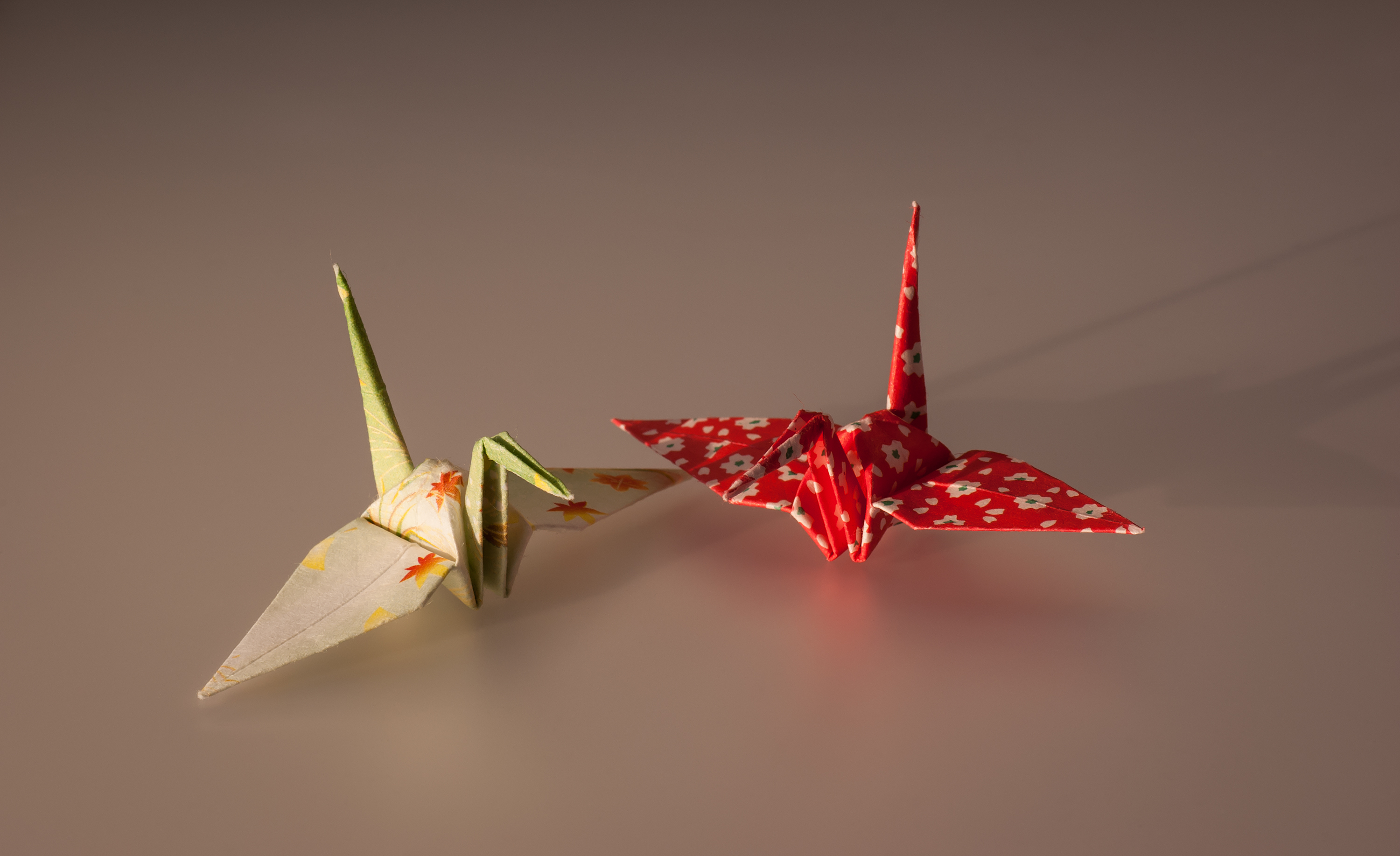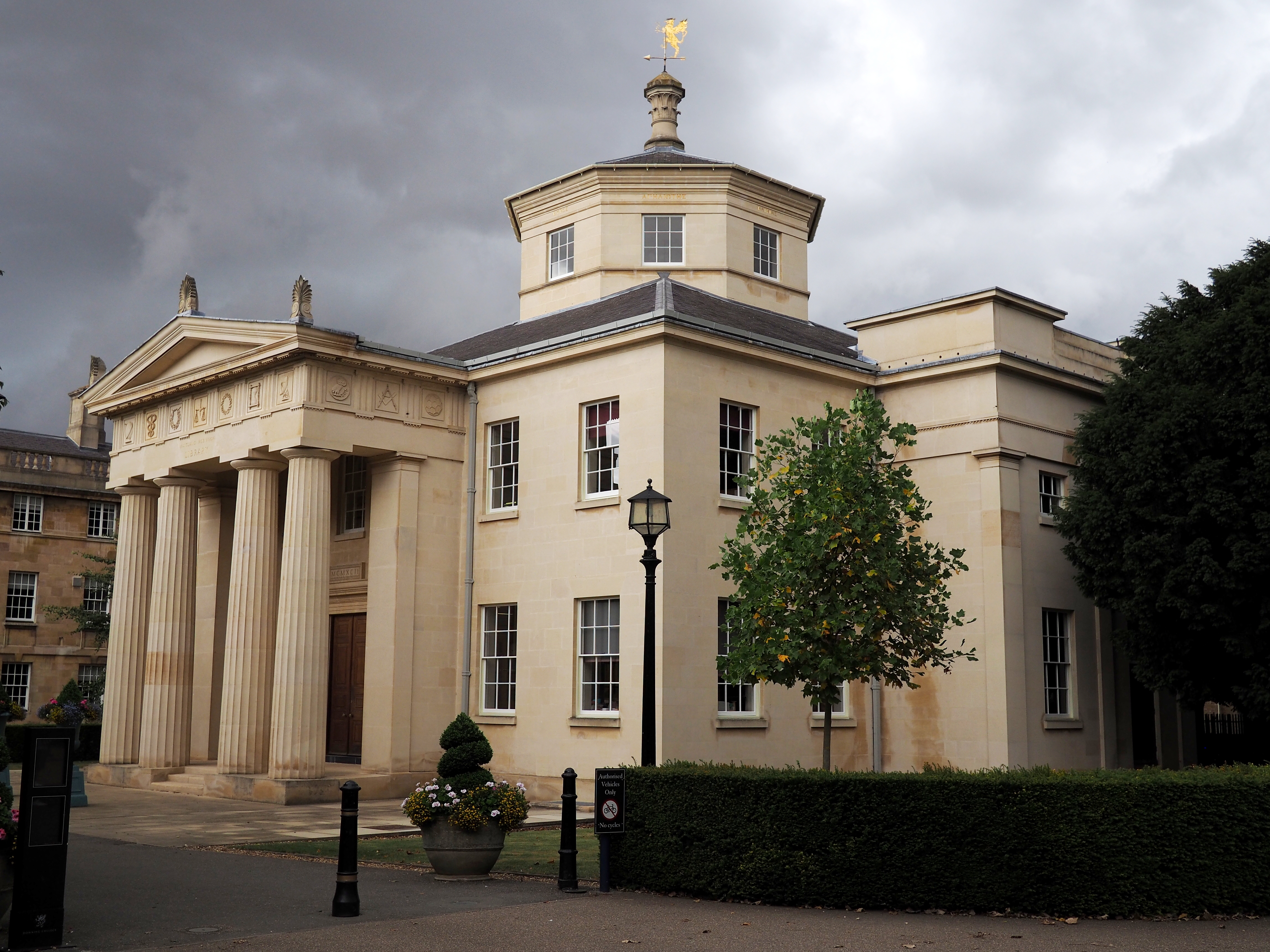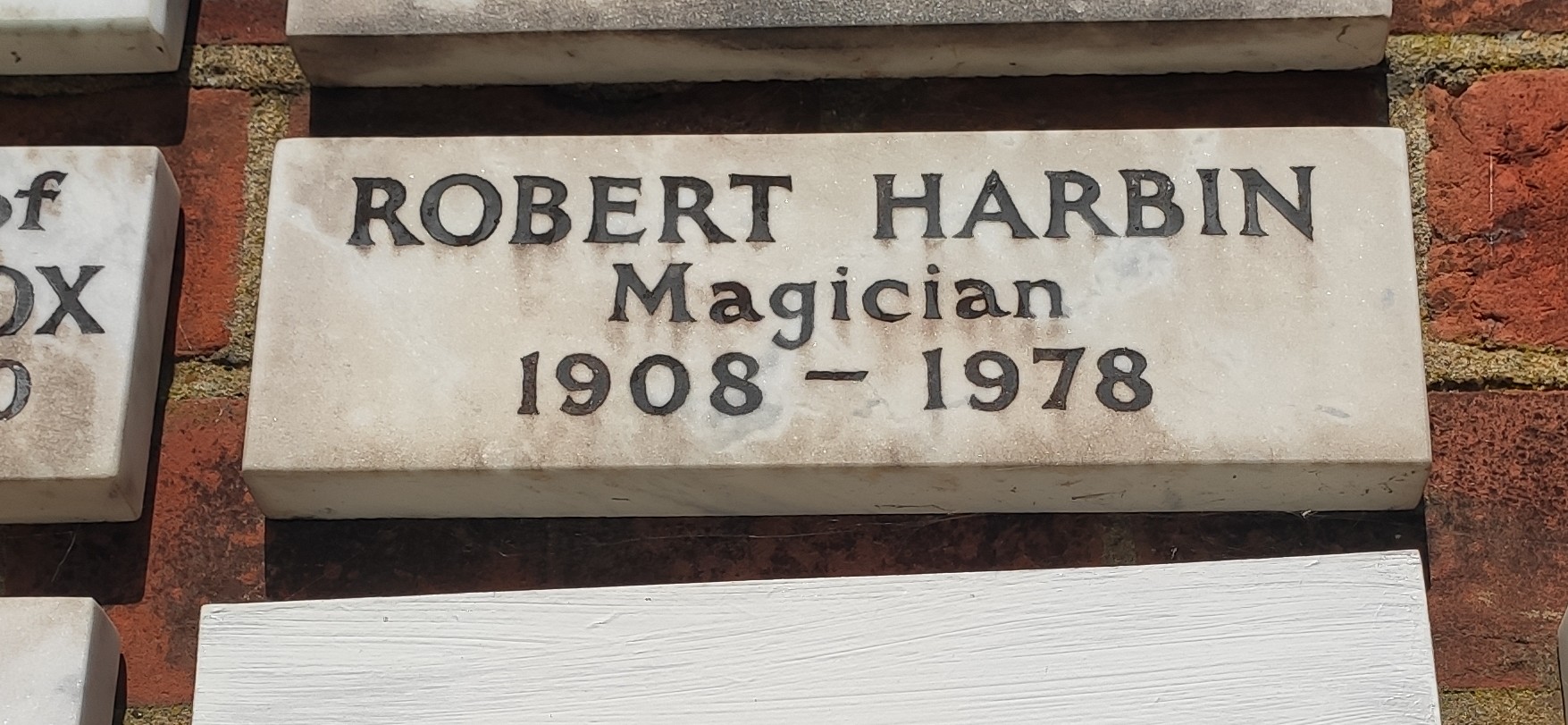|
David Lister (origami Historian)
David Lister (18 April 1930 – 13 February 2013) was the world's leading origami historian. He was a founding member of the British Origami Society. He wrote its constitution and served as its first president. Personal life Born in Grimsby, Lincolnshire, Lister was educated at a state school in Grimsby before earning a degree in history at Downing College, Cambridge. He then worked as a solicitor in Grimsby. Lister had three children and six grandchildren. Origami Lister was interested in Origami since he was young, but took it up in earnest in 1955 after seeing Robert Harbin on television in the children’s show ''Mr Left and Mr Right''. He corresponded with Lillian Oppenheimer and became a member of the Origami Portfolio Society founded in 1965. In 1967 he was an inaugural member of the British Origami Society and its first president, a position he also held from 1998 to 2002. During his life he built a large library that included 5,000 origami related items. He research ... [...More Info...] [...Related Items...] OR: [Wikipedia] [Google] [Baidu] |
Origami
) is the Japanese paper art, art of paper folding. In modern usage, the word "origami" is often used as an inclusive term for all folding practices, regardless of their culture of origin. The goal is to transform a flat square sheet of paper into a finished sculpture through folding and sculpting techniques. Modern origami practitioners generally discourage the use of cuts, glue, or markings on the paper. Origami folders often use the Japanese word ' to refer to designs which use cuts. On the other hand, in the detailed Japanese classification, origami is divided into stylized ceremonial origami (儀礼折り紙, ''girei origami'') and recreational origami (遊戯折り紙, ''yūgi origami''), and only recreational origami is generally recognized as origami. In Japan, ceremonial origami is generally called "origata" (:ja:折形) to distinguish it from recreational origami. The term "origata" is one of the old terms for origami. The small number of basic Origami techniques, ... [...More Info...] [...Related Items...] OR: [Wikipedia] [Google] [Baidu] |
The Times
''The Times'' is a British daily national newspaper based in London. It began in 1785 under the title ''The Daily Universal Register'', adopting its current name on 1 January 1788. ''The Times'' and its sister paper ''The Sunday Times'' (founded in 1821) are published by Times Newspapers, since 1981 a subsidiary of News UK, in turn wholly owned by News Corp. ''The Times'' and ''The Sunday Times'', which do not share editorial staff, were founded independently and have only had common ownership since 1966. In general, the political position of ''The Times'' is considered to be centre-right. ''The Times'' is the first newspaper to have borne that name, lending it to numerous other papers around the world, such as ''The Times of India'', ''The New York Times'', and more recently, digital-first publications such as TheTimesBlog.com (Since 2017). In countries where these other titles are popular, the newspaper is often referred to as , or as , although the newspaper is of nationa ... [...More Info...] [...Related Items...] OR: [Wikipedia] [Google] [Baidu] |
British Origami Society
The British Origami Society is a registered charity (no. 293039), devoted to the art of origami (paper folding). The Society has 700 members worldwide and publishes a bi-monthly magazine called "British Origami". They also have a library which is one of the world's largest collections of Origami resources, containing well over 4000 books, and a similar quantity of magazines, journals, convention packs and catalogues. As stated in the constitution of the society, its aims are, "to advance public education in the art of Origami and to promote the study and practice of Origami in education and as a means of therapy for the relief of people who are sick or mentally or physically handicapped".The constitution of the British Origami Society. http://www.britishorigami.info/society/constitution.php The society was founded at its inaugural meeting held at The Russell Hotel in London 28 October 1967. It was formed from the Origami Portfolio Society which had been founded in 1965. The first ... [...More Info...] [...Related Items...] OR: [Wikipedia] [Google] [Baidu] |
Grimsby
Grimsby or Great Grimsby is a port town and the administrative centre of North East Lincolnshire, Lincolnshire, England. Grimsby adjoins the town of Cleethorpes directly to the south-east forming a conurbation. Grimsby is north-east of Lincoln, England, Lincoln, (via the Humber Bridge) south-south-east of Kingston upon Hull, Hull, south-east of Scunthorpe, east of Doncaster and south-east of Leeds. Grimsby is also home to notable landmarks such as Grimsby Minster, Port of Grimsby, Cleethorpes Beach and Grimsby Fishing Heritage Museum. Grimsby was once the home port for the world's largest fishing fleet around the mid-20th century, but fishing then fell sharply. The Cod Wars denied UK access to Icelandic fishing grounds and the European Union used its Common Fisheries Policy to parcel out fishing quotas to other European countries in waters within of the UK coast. Grimsby suffered post-industrial decline like most other post-industrial towns and cities. However, food pro ... [...More Info...] [...Related Items...] OR: [Wikipedia] [Google] [Baidu] |
Lincolnshire
Lincolnshire (abbreviated Lincs.) is a county in the East Midlands of England, with a long coastline on the North Sea to the east. It borders Norfolk to the south-east, Cambridgeshire to the south, Rutland to the south-west, Leicestershire and Nottinghamshire to the west, South Yorkshire to the north-west, and the East Riding of Yorkshire to the north. It also borders Northamptonshire in the south for just , England's shortest county boundary. The county town is Lincoln, where the county council is also based. The ceremonial county of Lincolnshire consists of the non-metropolitan county of Lincolnshire and the area covered by the unitary authorities of North Lincolnshire and North East Lincolnshire. Part of the ceremonial county is in the Yorkshire and the Humber region of England, and most is in the East Midlands region. The county is the second-largest of the English ceremonial counties and one that is predominantly agricultural in land use. The county is fourth-larg ... [...More Info...] [...Related Items...] OR: [Wikipedia] [Google] [Baidu] |
Downing College, Cambridge
Downing College is a constituent college of the University of Cambridge and currently has around 650 students. Founded in 1800, it was the only college to be added to Cambridge University between 1596 and 1869, and is often described as the oldest of the new colleges and the newest of the old. Downing College was formed "for the encouragement of the study of Law and Medicine and of the cognate subjects of Moral and Natural Science", and has developed a reputation amongst Cambridge colleges for Law and Medicine. Downing has been named one of the two most eco-friendly Cambridge colleges. History Upon the death of Sir George Downing, 3rd Baronet in 1749, the wealth left by his grandfather, Sir George Downing, 1st Baronet, who served both Cromwell and Charles II and built 10 Downing Street (a door formerly from Number 10 is in use in the college), was applied by his will. Under this will, as he had no direct issue (he was legally separated from his wife), the family fortune was ... [...More Info...] [...Related Items...] OR: [Wikipedia] [Google] [Baidu] |
Solicitor
A solicitor is a legal practitioner who traditionally deals with most of the legal matters in some jurisdictions. A person must have legally-defined qualifications, which vary from one jurisdiction to another, to be described as a solicitor and enabled to practise there as such. For example, in England and Wales a solicitor is admitted to practise under the provisions of the Solicitors Act 1974. With some exceptions, practising solicitors must possess a practising certificate. There are many more solicitors than barristers in England; they undertake the general aspects of giving legal advice and conducting legal proceedings. In the jurisdictions of England and Wales and in Northern Ireland, in the Australian states of New South Wales, Victoria, and Queensland, Hong Kong, South Africa (where they are called '' attorneys'') and the Republic of Ireland, the legal profession is split between solicitors and barristers (called ''advocates'' in some countries, for example Scotland), ... [...More Info...] [...Related Items...] OR: [Wikipedia] [Google] [Baidu] |
Robert Harbin
Robert Harbin (born Edward Richard Charles Williams; 12 February 1908 – 12 January 1978) was a British magician and author. He is noted as the inventor of a number of classic illusions, including the ''Zig Zag Girl''. He also became an authority on origami. Career The young Edward first got interested in magic after an unknown ex-serviceman appeared at his school with a magic show later described as "rather poor". Williams came to London at the age of 20 and began by working in the magic department of Gamages toy shop. He began performing in music halls under the title "Ned Williams, the Boy Magician from South Africa". By 1932 he was appearing in the ''Maskelyne's Mysteries'' magic show in various London theatres. He was the first British illusionist to move from stage performing to television, appearing in the BBC TV show ''Variety'' in 1937''The Times'', "Broadcasting", 9 February 1937, p.9, col. A and numerous times after the war when the BBC resumed broadcasting. He develo ... [...More Info...] [...Related Items...] OR: [Wikipedia] [Google] [Baidu] |
Lillian Oppenheimer
Lillian Rose Vorhaus Kruskal Oppenheimer (October 24, 1898 in New York City – July 24, 1992) was an American origami pioneer. She popularized origami in the West starting in the 1950s, and is credited with popularizing the Japanese term ''origami'' in English-speaking circles, which gradually supplanted the literal translation ''paper folding'' that had been used earlier. In the 1960s she co-wrote several popular books on origami with Shari Lewis. Lillian Oppenheimer ran an informal group of dedicated folders in the New York City area, and in 1978 she co-founded, with Alice Gray and Michael Shall, the non-profit Friends of the Origami Center. After Oppenheimer's death, it was renamed OrigamiUSA. it is the largest origami organization in the United States. Oppenheimer was born to a Jewish family of Austrian, Hungarian, and Czech origin, the daughter of Bernard Vorhaus, an attorney who made a living importing furs. [...More Info...] [...Related Items...] OR: [Wikipedia] [Google] [Baidu] |
History Of Origami
The history of origami followed after the invention of paper and was a result of paper's use in society. In the detailed Japanese classification, origami is divided into stylized ceremonial origami (儀礼折り紙, ''girei origami'') and recreational origami (遊戯折り紙, ''yūgi origami''), and only recreational origami is generally recognized as origami. However, this page describes the history of both ceremonial and recreational origami. The modern growth of interest in origami dates to the design in 1954 by Akira Yoshizawa of a notation to indicate how to fold origami models. The Yoshizawa-Randlett system is now used internationally. Today the popularity of origami has given rise to origami societies such as the British Origami Society and OrigamiUSA. The first known origami social group was founded in Zaragoza, Spain during the 1940s. Traditional designs Ceremonial origami (origata) By the 7th century, paper had been introduced to Japan from China via the Korean Penins ... [...More Info...] [...Related Items...] OR: [Wikipedia] [Google] [Baidu] |
Alumni Of Downing College, Cambridge
Alumni (singular: alumnus (masculine) or alumna (feminine)) are former students of a school, college, or university who have either attended or graduated in some fashion from the institution. The feminine plural alumnae is sometimes used for groups of women. The word is Latin and means "one who is being (or has been) nourished". The term is not synonymous with "graduate"; one can be an alumnus without graduating (Burt Reynolds, alumnus but not graduate of Florida State, is an example). The term is sometimes used to refer to a former employee or member of an organization, contributor, or inmate. Etymology The Latin noun ''alumnus'' means "foster son" or "pupil". It is derived from PIE ''*h₂el-'' (grow, nourish), and it is a variant of the Latin verb ''alere'' "to nourish".Merriam-Webster: alumnus .. Separate, but from the s ... [...More Info...] [...Related Items...] OR: [Wikipedia] [Google] [Baidu] |
People From Grimsby
A person ( : people) is a being that has certain capacities or attributes such as reason, morality, consciousness or self-consciousness, and being a part of a culturally established form of social relations such as kinship, ownership of property, or legal responsibility. The defining features of personhood and, consequently, what makes a person count as a person, differ widely among cultures and contexts. In addition to the question of personhood, of what makes a being count as a person to begin with, there are further questions about personal identity and self: both about what makes any particular person that particular person instead of another, and about what makes a person at one time the same person as they were or will be at another time despite any intervening changes. The plural form "people" is often used to refer to an entire nation or ethnic group (as in "a people"), and this was the original meaning of the word; it subsequently acquired its use as a plural form of per ... [...More Info...] [...Related Items...] OR: [Wikipedia] [Google] [Baidu] |







_1938.jpg)